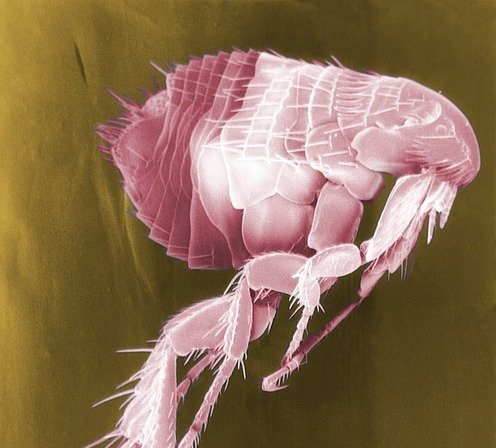Worker ants live longer if they are infected with parasite tapeworm. Tapeworm (Anomotaenia brevis) infected ant (Temnothorax nylanderi) workers have a longer life span than uninfected workers in the same ant colony.
Parasites are the organisms that are completely dependent on the host for their survival. Further, parasite infestation affects the host’s morphology, physiology, metabolism and behaviour, which ultimately reduces the host’s fitness. Thus, parasites prefer the host species that cannot be killed easily so that parasites can complete their life cycle within the host. Further, if the parasite uses any intermediate host, it should provide an opportunity to reach the final host to complete its life cycle.
Recently an exciting paper was published in the “Royal society open science” where a group of researchers from Germany observed a different kind of behaviour of the host ants (Temnothorax nylanderi) by a parasite tapeworm (Anomotaenia brevis) that lives in the host ants.The ant colonies consist of a single queen and many worker ants. The queen has a longer life span of around two decades, while the workers have a shorter life span. The queen is fertile while the workers are sterile. The worker ants used to go outside for food. Some worker ants in these colonies are infected with larvae of the parasite tapeworm, which changes their metabolism. Due to parasite infestation, they remain in the nest and never go outside from the nest. Instead, the food is provided to them by other worker ants that are not infested by tapeworm and go outside. The tapeworm infested ant workers have always yellow and less sclerotized cuticle than other brown uninfested ant workers. After three years of their study on 58 ant colonies, the authors found that around 50% of the tapeworm-infested worker ants still live while all the uninfested worker ants die.
Similarly, the lifespan increase of the host by the parasite was also reported in some earlier studies, but it also affects the fecundity of the host species. However, tapeworm-infested ants do not affect the fecundity of the host species. Therefore, this study concludes that two ant workers have a similar genome and the same function in society. Still due to parasite infestation, morphology and metabolisms change, which results in a change in their behaviour and ultimately increases their life span. Recently Zhang and Gems published a review article in elife journal. In this article, they hypothesized that certain parasites such as tapeworm, roundworms and flukes have anti-inflammatory properties, which may help prevent the aging process. So parasites or any molecules from the parasites can be used as anti-aging/anti-inflammatory chemicals; much of the basic biological research is required to answer this question.
Reference
- Beros, S.; Scharf, I.; Lenhart, A.; Negroni, M.A.; Menzel, F.; Foitzik, S. Extreme lifespan extension in tapeworm-infected ant workers. Proc. R. Soc. B Biol. Sci. 2021.
- Zhang B and Gems D. Gross ways to live long: Parasitic worms as an anti-inflammaging therapy? eLife 2021;10:e65180 DOI: 10.7554/eLife.65180
- Hurd H, Warr E, Polwart A. 2001 A parasite that increases host lifespan. Proc. R. Soc. Lond. B 268, 1749–1753. (doi:10.1098/rspb.2001.1729
